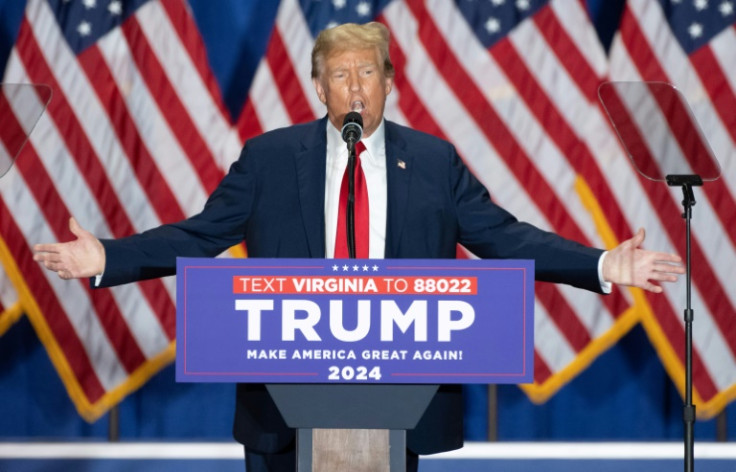
Former President Donald Trump is seeking to delay his hush money trial scheduled for March 25 until the Supreme Court rules on his claims of presidential immunity in another criminal case.
Trump's lawyers asked Manhattan Judge Juan Manuel Merchan on Monday to adjourn the trial indefinitely until the immunity claim in his Washington, D.C., election interference case is resolved.
Merchan, in an order late Monday, criticized Trump's legal team for missing a filing deadline and waiting until two weeks before jury selection to raise the immunity issue without providing a clear explanation. Going forward, the judge mandated that Trump's lawyers and prosecutors must seek his permission before making any pretrial motion, AP news reported.
Trump contends he is immune from prosecution for conduct alleged to involve official acts during his tenure in office. His lawyers argue that some evidence and alleged acts in the hush money case overlap with his time in the White House and constitute official acts.
The Supreme Court is set to hear arguments on April 25, a month after the scheduled start of jury selection in Trump's hush money case. This marks the first of four criminal cases scheduled to go to trial as Trump pursues the Republican presidential nomination.
The Manhattan district attorney's office declined to comment on the delay request, and prosecutors are expected to respond in court papers later this week.
In his Washington, D.C., criminal case, Trump faces allegations of working to overturn the 2020 election results in the lead-up to the Capitol riot on January 6, 2021. He initially raised the immunity issue in this case.
The hush money case revolves around accusations that Trump falsified his company's internal records to conceal payments to his former lawyer Michael Cohen. Cohen, in turn, paid $130,000 to adult film actress Stormy Daniels to suppress her claims of a previous extramarital encounter with Trump.
Trump pleaded not guilty last year to 34 felony counts of falsifying business records. He has consistently denied any sexual encounter with Daniels, maintaining that the payments to Cohen were legitimate legal expenses and not part of a cover-up.
A federal judge previously rejected Trump's argument that the hush money indictment involved official duties, preventing the case from being moved to federal court.







